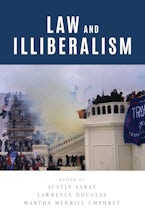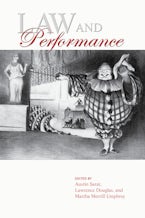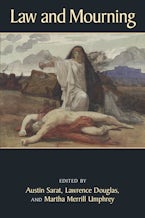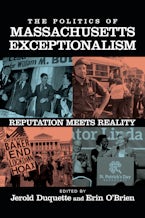- Home
- Who Deserves to Die?

Who Deserves to Die?
Constructing the Executable Subject
Edited by Austin Sarat and Karl Shoemaker
Published by: University of Massachusetts Press
328 Pages, 6.00 x 9.00 x 0.80 in
Other Retailers:
How do we select those who will be subject to capital punishment? How do we identify the worst of the worst and decide who among them can and should be executed? Today these questions are more pressing than they have ever been. As the number of people sentenced to death and executed declines in the United States, those who are executed stand out as distinctive kinds of criminals, distinctive kinds of people. Does a death sentence affirm or deny their humanity? Is such a sentence an act of revenge or a carefully calculated act of justice?
These are more than questions for policy and law. They are one way of getting a handle on how our culture understands what makes life worth preserving and of delving into its complex calculus of punishment and retribution. Who Deserves to Die? brings together a distinguished group of death penalty scholars to assess the forms of legal subjectivity and legal community that are supported and constructed by the doctrines and practices of punishment by death in the United States. They help us understand what we do and who we become when we decide who is fit for execution.
In addition to the editors, contributors include Vanessa Barker, Thomas L. Dumm, Daniel Markel, Linda Meyer, Ruth A. Miller, Ravit Reichman, Susan R. Schmeiser, Mateo Taussig-Rubbo, and Robert Weisberg.
These are more than questions for policy and law. They are one way of getting a handle on how our culture understands what makes life worth preserving and of delving into its complex calculus of punishment and retribution. Who Deserves to Die? brings together a distinguished group of death penalty scholars to assess the forms of legal subjectivity and legal community that are supported and constructed by the doctrines and practices of punishment by death in the United States. They help us understand what we do and who we become when we decide who is fit for execution.
In addition to the editors, contributors include Vanessa Barker, Thomas L. Dumm, Daniel Markel, Linda Meyer, Ruth A. Miller, Ravit Reichman, Susan R. Schmeiser, Mateo Taussig-Rubbo, and Robert Weisberg.
Austin Sarat is William Nelson Cromwell Professor of Jurisprudence and Political Science at Amherst College.Karl Shoemaker is associate professor of history and law at the University of Wisconsin, Madison.
"An important work. In a country in which the justification for the continued execution of criminals is based on the collective goals of deterrence and order, it is refreshing to step back and remember that individuals are executed and that the executable subject is the means to achieve the polity's stated collective goals. Who Deserves to Die? is a wonderful, timely, and overdue addition to the debate over capital punishment."—Beau Breslin, author of From Words to Worlds: Examining Constitutional Functionality
"Given the complex death penalty regime in the United States and the contested legitimacy of capital punishment, these questions are wide open and provide a fertile field for exploration in the ten chapters included in the volume edited by Austin Sarat and Karl Shoemaker. . . . The contributors to this volume include law professors, political scientists, professors of English, sociology, and history. Some articles advance legal or cultural arguments, others involve postmodern analysis. All are scholarly and thought-provoking."—Law and Politics Book Review
"[These] articles are scholarly and thought-provoking. Dumm's chapter is rich in provocative ideas and serves as a fitting- and haunting- conclusion to this extraordinary collection. Many of the chapters challenge the reader, intellectually as well as morally. Most deserve several readings to digest fully their multi-layered arguments."—Radford University
"Revelatory. . . . Well researched and scholarly, these essays will fascinate serious students of the death penalty: An excellent work for specialized libraries."—Library Journal
"Esoteric literary and philosophical references blended with temporal case law could make for an uneven read, yet, the editors and contributors ultimately manage to effectively weave together disparate legal, political, and cultural themes. The book's primary contribution is its ability to integrate these ideas in deep subtextual and express manners."—Leona D. Jochnowitz, Criminal Justice Review











